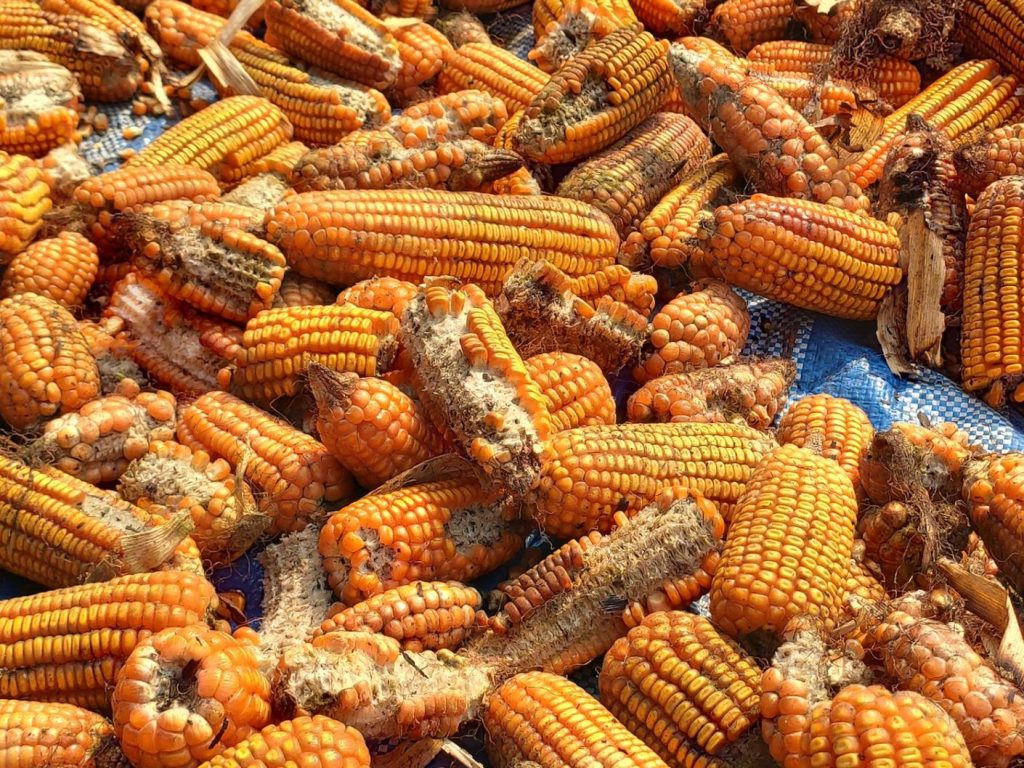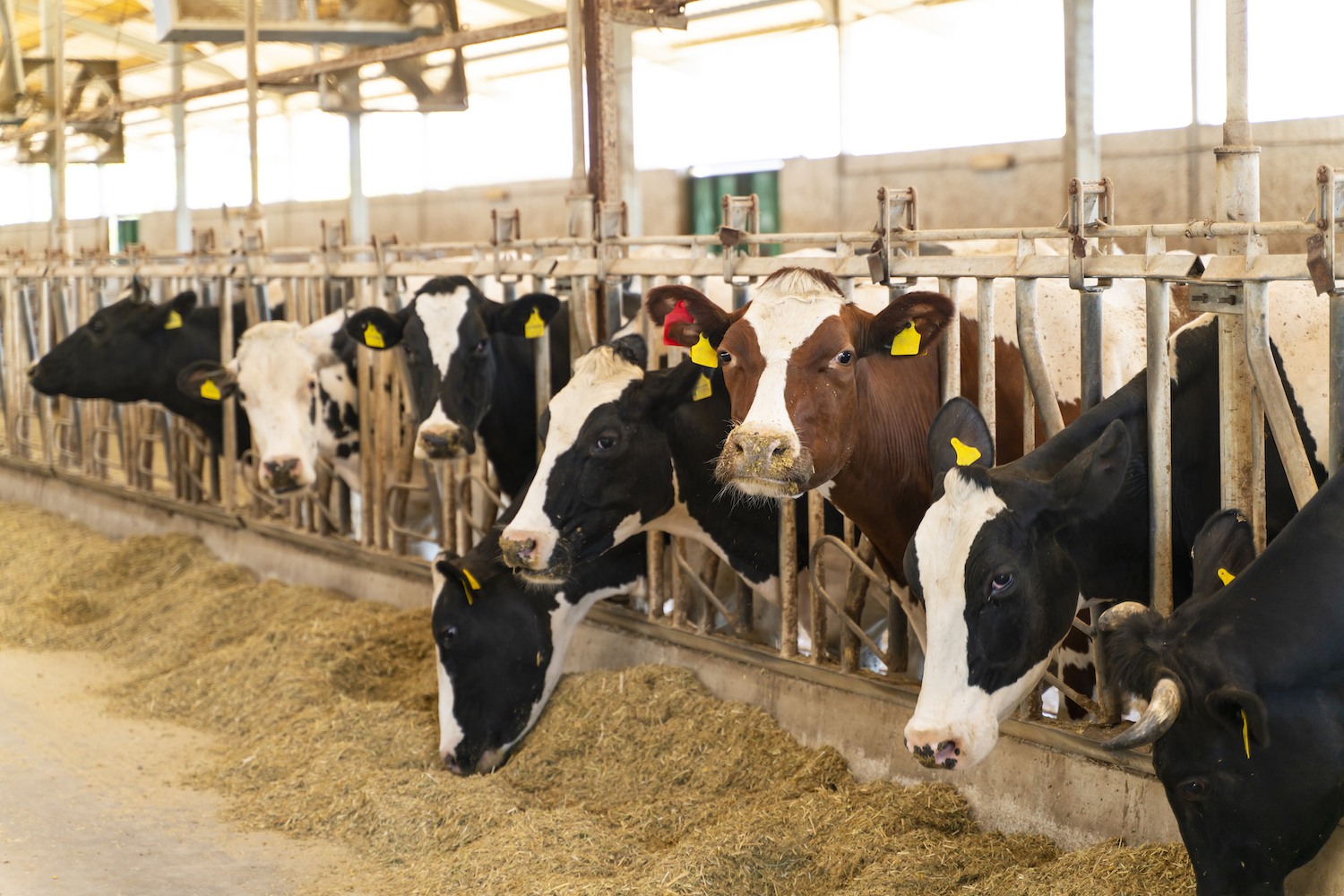
Fungal toxins known as mycotoxins, including some thought lost to history, are claiming new territory as the Earth warms.
Karen Jordan, a North Carolina dairy farmer and practicing veterinarian, knew she had trouble the minute her cows’ hair began to stand up on end.
When a cow is healthy, she explains, their hair lays tight and sleek against their skin. But one by one, her cows began to poof up like agitated cats. A few days later, she found out why—the corn she had fed her cattle contained an invisible, harmful compound called T2.
Then she “got unlucky” a second season when she picked up another bad batch of feed, this time a load of cotton seed. That year, she figures, the rash of hurricanes had dumped so much water on southeastern farms that mold, and associated toxic compounds called mycotoxins, had spoiled whole swaths of cropland.
“This year we were wet early, and then it kind of straightened out. But in the Midwest, it was wet late. That was the perfect stew for a mycotoxin year.”
People involved in food production have been aware, on some level, of the presence and harms of mycotoxins for at least 2,000 years. These toxins, we now know, are harmful chemicals produced predominantly by the fungi that grow in grains. Historically, mycotoxins have triggered outbreaks of gangrene, convulsions, heart failure, paralysis, mental illness, and may have even played a role in the Salem witch trials. Today, they are largely considered a problem for animal producers, whose animals can fall ill and even die if fed contaminated grain or silage.
But the toxins are rapidly spreading, hastened by climate change and reduced global crop diversity.
This January, John Winchell loaded up his truck to pay a visit to farms throughout the northeastern U.S., where he consults with farmers about the detection and prevention of mycotoxins on behalf of Alltech, a global animal and food production supplier. The last three years, he says, mycotoxins have been particularly prevalent in the U.S. But he takes comfort in the fact that the uptick is not exactly mysterious—it’s all due to the weather.
“We’ve had two years of consistently wet weather,” he says. “This year we were wet early, and then it kind of straightened out. But in the Midwest, it was wet late. That was the perfect stew for a mycotoxin year.”

Once a farmer realizes they have a problem, they must identify the source. For larger dairies, this process can take so long that by the time you get your tests back, the guilty load of feed is probably already consumed.
While the last two to three years stand out for having produced exceptionally high levels of mycotoxin contamination—particularly in chopped up, fermented corn stalks and leaves that are fed primarily to cattle—this isn’t a recent trend. National data collected by Alltech, Winchell says, shows a steep increase in many of the toxins common to the U.S. since monitoring began in 2012.
Some of this increase can be attributed to advances in scientists’ ability to detect mycotoxins, as well as a growing library of just how many varieties actually exist. But experts around the world agree that climate change is also playing a significant role. Not only does climate change promote the weather conditions that trigger mycotoxin production, but shifting weather patterns are causing various toxins to appear in new regions of the world—places where food producers can be caught unawares, unable to respond in time to prevent widespread contamination.
For developed countries like the U.S., mandatory tests rolled out in recent decades are designed to catch these outbreaks before they impact consumers. But in developing countries, or among low-income populations that may be more inclined to consume homemade or craft food products, mycotoxins remain a growing concern.
I all the time emailed this blog post page to all my contacts, for the reason that if like to read it after that my friends will too. Charity Harp Gil
Comments are closed.